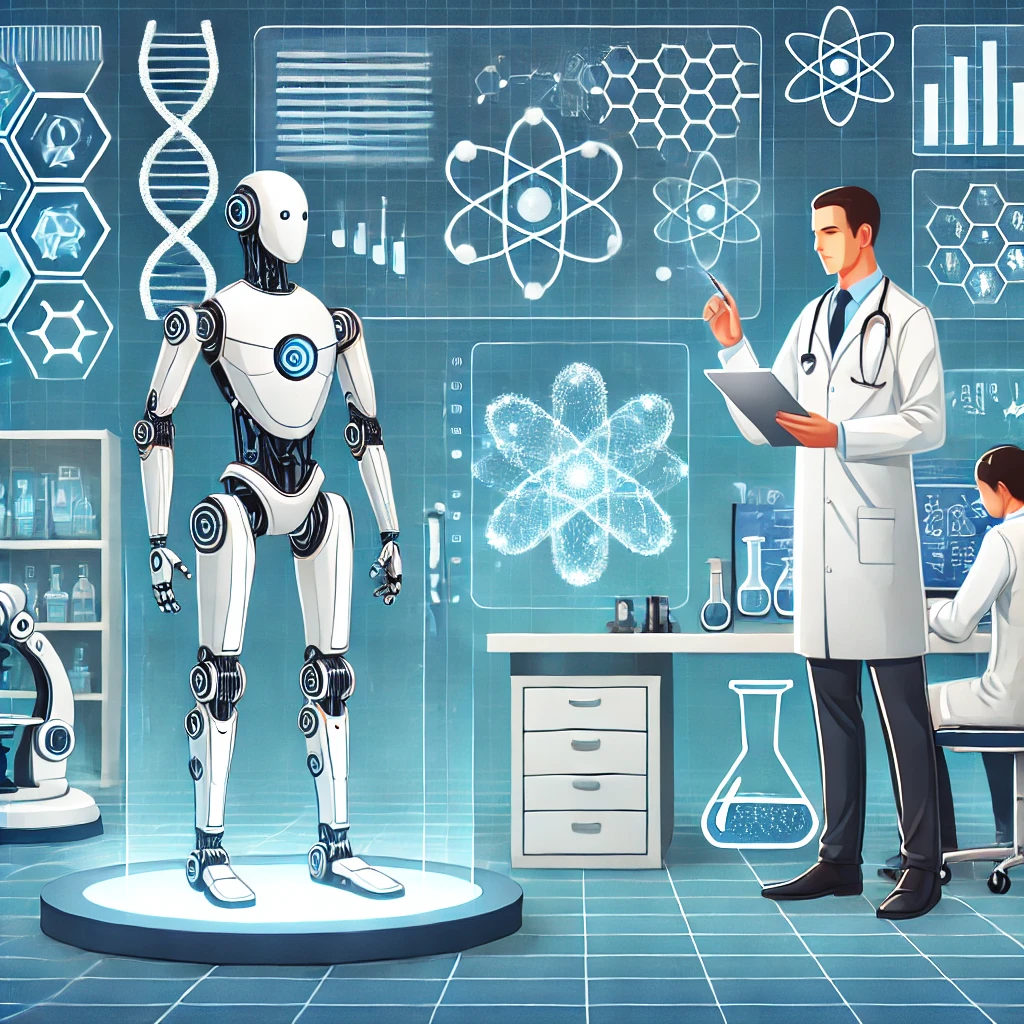Researchers have developed an “AI Scientist,” an artificial intelligence system designed to assist in scientific discovery and research. This AI is not just another tool; it has the potential to change how we conduct scientific experiments and solve complex problems. But what exactly can this AI Scientist do?
What is an AI Scientist?
An AI Scientist is an advanced AI system that can help researchers by analyzing data, generating hypotheses, designing experiments, and even conducting some aspects of scientific research autonomously. Unlike traditional AI tools that perform specific tasks, the AI Scientist is built to think more broadly and creatively, much like a human scientist would.
Key Capabilities of the AI Scientist
- Data Analysis and Pattern Recognition: The AI Scientist can analyze massive datasets faster than any human could. It looks for patterns and correlations that might not be obvious, helping researchers identify new trends or insights that could lead to breakthroughs.
- Generating Hypotheses: Based on the data it analyzes, the AI Scientist can propose new hypotheses for researchers to test. This ability to generate ideas helps accelerate the scientific process, as it can suggest directions that may not have been considered before.
- Designing Experiments: The AI can design experiments by determining the best methods, controls, and variables to use. This is particularly useful in fields like chemistry and biology, where designing effective experiments is a critical part of discovery.
- Conducting Simulations: In some cases, the AI Scientist can run simulations to test hypotheses without needing to conduct physical experiments. This can save time, reduce costs, and minimize risks, especially in fields like pharmaceuticals, where trials can be expensive and time-consuming.
- Collaborating with Human Researchers: While the AI Scientist can do a lot on its own, it works best when collaborating with human scientists. It provides insights, suggests ideas, and helps guide research, but human intuition and creativity still play a crucial role.
Why is the AI Scientist Important?
The AI Scientist is important because it can significantly speed up the pace of scientific discovery. By handling repetitive tasks, analyzing vast amounts of data, and proposing new ideas, it frees up human researchers to focus on more complex, creative, and strategic aspects of their work. This collaboration between AI and human researchers could lead to faster breakthroughs in medicine, physics, environmental science, and more.
Looking Ahead
While the AI Scientist is still in its early stages, its potential is enormous. As it continues to learn and improve, it could become an invaluable tool in labs worldwide, helping solve some of the most challenging problems in science. For now, it represents an exciting step forward in how we use AI to expand our understanding of the world.


